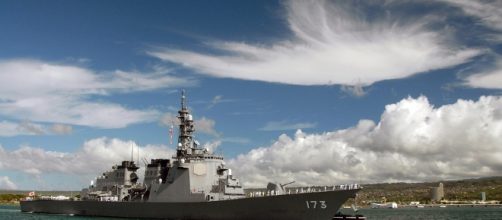The political leadership has relentlessly committed the U.S. armed forces all over the world as part of American objectives and commitments to allies and controlling antagonistic countries like China, Russia, and Islamic terror groups. Clausewitz had in his “Principles of War,” laid down that war is an extension of the political aim and keeping this axiom in mind, the U.S. political leadership has positioned its Navy in all corners of the world.
This has had its repercussions and the naval force is too thinly dispersed and there is not enough time for training and maintenance activities.
The fleet is also depleted due to budgetary constraints, as many of the warships have been denied a refit and maintenance schedules have suffered. According to naval experts, serving and retired Navy officers, this has led to major problems and the four major incidents at sea this year as well as the deaths of 17 sailors can be traced to this lacuna.
There is enough evidence to show that greater commitments to give muscle to political decisions have led to systematic problems, which are directly related to long deployments, deferred maintenance schedules, and shortened training periods.
Opinion of experts
According to Bryan McGrath, a former destroyer commander who is presently deputy director of the Center of American Sea Power at the Hudson Institute, the Navy’s surface fleet has been in a decline for the last 15 years.
Donald Trump has increased the Defense Budget but this increase is not enough, as the Navy has an onerous task of making its presence felt all over the globe.
The Navy has 276 warships and the president has proposed a 350 ship navy, but this increase will take decades to become a reality. In the meantime, the Navy's fleet, particularly in the Pacific, will remain thinly dispersed and extremely vulnerable to accidents and other mishaps. It is worth pondering that the Navy suffered over 30 casualties during peace time, much more than the military suffered in Afghanistan in combat in 2017.
The solution
The last two accidents prima facie show that officers on watch duty failed to act as per laid down procedures.
This is a serious matter, as lives of sailors and the well-being of the warship is at stake. Damage to a warship depletes the fleet further as well as costing millions of dollars, which drain the defense budget. What is the solution? The Navy top brass will have to put on their thinking caps and brainstorm a solution. Maybe there could be a small curtailment in the deployment and greater emphasis on training and maintenance of warships.


